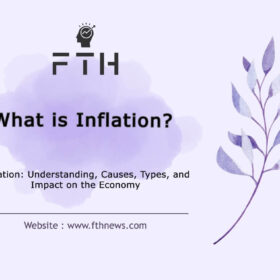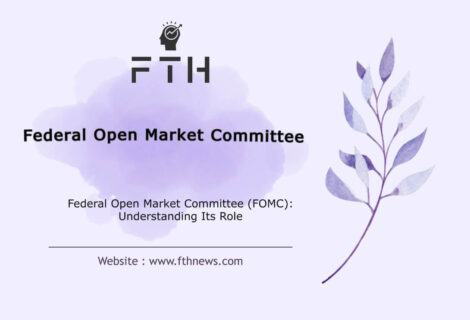
How Economy Grows and Why It Crashes
How Economy Grows and Why It Crashes In the grand tapestry of human history, economic principles have stood the test of time, enduring for thousands of years.
Yet, as we navigate the complexities of modern economics, something seems to disrupt this age-old narrative, leaving many bewildered. It’s as though a mysterious force has twisted the very fabric of our economic understanding.
To confront the perplexing prescriptions offered for our economic woes, it’s imperative that we grasp a firm comprehension of the core concepts at play.
Summary of the Book How an Economy Grows and Why It Crashes by Peter Schiff
Within the pages of Peter Schiff’s book “How Economy Grows and Why It Crashes,” we delve into the intricate dance of economics.
In a world where inflation, taxation, and economic paradigms seem increasingly incompatible with our accumulated wisdom from centuries of commerce, Schiff’s work shines a light on the essentials.
The Triad of Savings, Credit, and Investment: A Rare Combination:
When an economy ails, it’s akin to a patient in desperate need of a doctor.
Unfortunately, economists, the so-called healers of the economic realm, often opt to offer motivational phrases instead of diagnosing and treating the underlying issues.
They may say, “You think you’re unwell,” or “Embrace the new situation; it’ll improve with time.” Consequently, the economy languishes in sickness, hoping for a miraculous recovery that never comes. Hasn’t this narrative felt all too familiar? Hasn’t the fever of economic woes melted away your hard-earned money like ice in the sun?
In truth, when an economy falters, people shift from pursuing dreams to merely surviving. As dreams gather dust on the shelves, daily needs take precedence. This isn’t a misguided response; after all, when your pockets are empty, lofty aspirations take a back seat.
But how can we administer the medicine that revives the ailing economy, returning it to its glory days? We firmly believe that by opening our eyes to the realities of the economic world and examining events through an economic lens, we can uncover the path to reshape our current circumstances. It’s a journey to understand how economies thrive and why they falter, offering us a compass to navigate these turbulent waters. In the subsequent sections, we’ll explore these key economic pillars, including savings, credit, and investment, to decipher the enigma of how the economy grows and why it sometimes crashes.
Understanding How Economy Grows and Why It Crashes:
Imagine your lunch plate with a spoon and fork in front of you. You sit at the table not to eat your tools but to enjoy your meal with their help. In the world of economics, capital works in much the same way.
Capital as a Tool: Capital is, essentially, a tool. You don’t consume the tool itself; rather, you use it to generate value. Your capital acts as the means to an end, much like your spoon and fork at the lunch table. In economic terms, your capital is the instrument you employ to create wealth, whether through investments in financial markets or participation in other active sectors of society.
The Sacrifice of Accumulation: Not everyone is born with a “silver spoon in their mouth,” as the old Eastern proverb goes. Most people have to acquire their tools through hard work and financial sacrifice. They forego immediate pleasures in the hope of building a better future. This self-restraint and delayed gratification are the building blocks of capital.
Overcoming Inner Doubts: In the pursuit of capital, individuals often wrestle with self-doubt. They question whether their capital will indeed accumulate or if they can turn it into profit and outpace others. This internal conflict persists until the moment when their investments yield their first profits.
Inspiring Others: When one’s capital, the tool for wealth creation, performs effectively, it serves as an inspiration to others. Those who have been observing from the sidelines take note of the individual’s success. In turn, they seek to follow a similar path, realizing that creating and effectively utilizing capital can lead to financial gain and prosperity.
In summary, capital is the tool by which individuals and businesses generate wealth and economic growth.
A Fresh Perspective on Supply and Demand:
As we embark on the journey of economic understanding, one concept stands at the core: “supply and demand.” These two fundamental ideas, often shrouded in complexity, can be distilled into something simpler. At its heart, “demand” is merely our pursuit of a better life.
In our quest for a fulfilling life, we first seek to satisfy our most basic needs—food, clothing, and shelter to protect us from the elements and other potential dangers. But once these essential requirements are met, our desires extend beyond survival. They reach into the depths of our souls.
In essence, demand is an unending force. It’s a force that propels the economy forward. The factories producing raw materials exist to meet the demands of manufacturing plants, which, in turn, create the goods and services we seek. This includes not only necessities but also the products that bring joy, convenience, and beauty into our lives.
Even the wealthiest individuals continue to pursue new needs and desires, driving the economy ever forward.
The engine of economic growth is not just demand but also the supply that fulfills it. In simpler terms, when a product or service is readily available in the market, people’s inclination to purchase it surges. Here, supply takes the lead, compelling more significant demand.
To illustrate, consider a journey to the moon. Many dream of gazing upon Earth from the vantage point of outer space and stepping foot on other planets within our solar system. However, this desire remains largely unfulfilled, primarily due to limited supply. It’s not a lack of financial means that prevents us from satisfying this demand, but the limited availability of space travel opportunities.
In essence, the balance between supply and demand is what steers the economic ship. When supply is abundant, it triggers greater demand, illustrating that supply holds the reins, while demand follows its lead.
The Real Wealth Builders: Driving Economic Vision
In the world of economics, the term “rich” can evoke mixed sentiments. Some view the wealthy with skepticism, perceiving them as opportunists profiting from the misfortunes of others. However, a deeper look reveals that true economic development is often driven by those who utilize their riches strategically.
Wealth with Purpose: The real rich are those who harness their capital to achieve goals that, in turn, foster the growth and expansion of the economy. These individuals don’t sit idly, waiting for handouts, nor do they shun financial literacy. They actively broaden and deepen their economic vision while seeking solutions to complex problems.
Two Key Reasons for Their Success:
The ascent of the rich is propelled by two critical factors:
Financial Intelligence and Vision: Rich individuals accumulate their wealth by leveraging financial intelligence and their keen economic vision. They know how to multiply their resources through prudent investments and strategic decisions.
Calculated Risk-Taking: They take calculated risks by investing their resources with the expectation of generating profits. While it might seem like they effortlessly amass wealth, in reality, they have toiled and strategized before reaping the rewards. It’s akin to a farmer tending to their crops throughout the seasons before a bountiful harvest.
Enriching the Economic Ecosystem: How Economy Grows and Why It Crashes
Importantly, one person’s journey to wealth doesn’t preclude others from achieving the same. In fact, it often paves the way for economic growth at both the individual and national levels. The more challenging the economic landscape, the more significant the impact of their endeavors. Enriching oneself financially contributes to the broader economic movement, benefiting not only the individual but also the country’s economic health.
In conclusion, the real rich are not just beneficiaries of their wealth but also drivers of economic development, using their financial acumen and risk-taking to enrich themselves and, in the process, stimulate economic growth.
How Economy Grows and Why It Crashes: The Power of Saving
For individuals who haven’t inherited generational wealth, the key to financial prosperity often lies in a straightforward concept: saving. By consciously setting aside money and resisting the urge to spend on unnecessary items, anyone can ignite the spark of financial growth.
In societies where people possess a strong economic vision, saving is revered, and this reverence propels economic prosperity. The wheels of industry continue to turn, ensuring robust economic growth. However, in our contemporary era, economists sometimes encourage excessive spending, based on theories that prove ineffective in both times of economic boom and recession.
According to this perspective, saving is seen as money removed from the economic cycle, stagnating in isolation. This misconception has lured many into the treacherous world of loans, driven by a lack of foresight.
While loans can inject a quick boost of cash into an individual’s financial life, this does little to invigorate the broader economic cycle. Those who prioritize saving, on the other hand, have a financial lifeline during challenging times. Instead of seeking loans from various institutions and banks and repaying both principal and interest, they tap into their savings.
Reviving a culture of saving among the populace could lead to smoother access to loans for producers. This, in turn, would accelerate economic growth and production.
Contrary to the misconception that savers lose interest in the production cycle, the truth is quite the opposite. People with savings often consider investing and even starting their own businesses. The act of saving not only secures financial stability but also fuels the ambition to contribute to and benefit from the economic and production cycles. Financial freedom, as it turns out, starts with the simple act of saving.
A Vision of Prosperity: Low Prices and High Wages
In our contemporary world, the illusions spun by economists seem boundless. They’ve turned the game of low and high prices into a political playground. You may think there’s no place on Earth where prices are low and wages are high, and you might be right. But the essence of this issue has little to do with a weak economy.
In reality, a healthy economy, untainted by political interference, can naturally lead to lower prices and increased purchasing power for its citizens. Let’s delve into this concept further.
You might wonder, “How can manufacturers lower their prices and still turn a higher profit? How can self-employment be less profitable than working for others? How can money circulate among the people, while the wheels of the economy keep turning?” Pause for a moment.
Why should it not be this way? Is the very essence of economics, the cultivation of economic vision, the creation of currency, and all financial principles not meant to enable everyone to live comfortably within a just and rational system? What purpose does this economic cycle serve if we must spend a fortune to meet our basic needs?
What politicians and their economic counterparts seem to have omitted from the economic equation is “productivity coupled with sustainable money production.”
Imagine you’re a factory owner capable of producing high-quality products in significant quantities with the aid of technological advancements, the progress of civilization, and the capital from people’s savings. This scenario allows you to reduce prices and enhance people’s purchasing power.
Now, envision a city or a nation where several such factories thrive. Doesn’t this scenario allow its inhabitants to breathe easier and relish the benefits of living in the 21st century? In such a world, the dream of low prices and high wages can indeed become a reality, signifying a true economic paradise.
Why Politicians Aren’t Thrilled with It
The enigma perplexing politicians is perhaps rooted in their tendency to replace people’s judgment and decision-making with their own. It’s a sentiment that goes something like this: “No…! They don’t know how to spend their money! It’s better if we nudge them in the right direction by manipulating prices and showcasing our economic vision!”
The conundrum has left politicians and economists holding the reins of power. Their economic foresight extends only as far as the tip of their noses.
What they fail to consider for even a moment is that, even if prices were to drastically drop, people wouldn’t drown themselves in excessive consumption. The public is quite discerning when it comes to determining which products are worth their hard-earned money and which are not.
In truth, politicians find themselves ensnared in a perplexing paradox. They simultaneously desire to steer people toward consumerism and yet dread the prospect of people having actual purchasing power!
Politicians and economists have inadvertently propelled people to keep their pockets empty while enduring soaring prices. However, as the dust settles, they may come to realize the repercussions of their actions, evident in history’s pages for future generations to ponder upon.
The Birth of Governments: A Rewind
Let’s rewind the historical narrative to a time when the need of the people gave rise to a novel concept – “government.” As the economy transitioned from its primitive state to a more complex form, and the gates of trade opened, a host of issues emerged.
Some individuals chose to abscond with the fruits of others’ labor instead of engaging in productive work. Differences and disputes among merchants further complicated the lives of ordinary people.
To address these challenges, the populace decided to appoint individuals from among themselves, forming a cohesive group. They hired protectors to ensure the security of the community or established an impartial council to resolve conflicts among merchants.
To finance these functions, it was deemed necessary for individuals to contribute “taxes.” Simultaneously, constitutions were drafted to define the limits of the government’s authority. In essence, the government was essentially a hired force working in the interest of the people, with the people’s input and for the people’s welfare.
Yet today, governments have transformed into formidable entities that, driven by political interests, often prioritize everything but the well-being and prosperity of the people and the economy.
They deceive, increase taxes – particularly levies on production, engage in embezzlement, abuse their powers, construct opulent edifices for their own comfort, quell protests, and initiate wars with other nations seemingly at their whim.
The contemporary government has deviated far from its original purpose and utility for the global populace. The intoxication of power has led elected officials, appointed by the people to manage affairs, astray from the path they were meant to tread.
Rather than protecting economic principles, politicians are primarily concerned with making political promises to secure their positions in the government. They propagate falsehoods, shape narratives, and suppress freedoms as if wielding a club over the heads of the people.
When Taxation Falls Short of Government Expenses
We’re gradually approaching the intriguing part of the story, where the curtain is lifted on the economic and governmental charades. A while ago, we explored the concept of people paying taxes to fund the government’s operations, an arrangement established for the common good.
But as the decades passed, the senators grew craftier, wielding their power and authority for personal gain. They began to view themselves as entitled to extract far more from the people’s taxes than what the constitution permitted. In some instances, they even manipulated expenditures or rewarded themselves for resolving issues that never existed.
The younger generation of senators took things a step further, making extravagant pledges and proclamations in front of the treasury, which overflowed with the people’s taxes and could scarcely be matched by the Seven Golden Treasuries.
The problem of dwindling treasury reserves needed a definitive solution. Their response was to entrust the task of replenishing the treasury to a money-printing machine.
Money had existed long before this, but the new currency carried a peculiar characteristic that made it the darling of statesmen – its whimsical nature.
Traditionally, money was a symbol of gold held in the treasury, maintaining a controlled supply and universal acceptance among neighboring nations. However, this new currency held no intrinsic value apart from the number printed on its face, a fact unnoticed by the people, according to the senators.
Anyone who dared to speak about principles like “justice” and “honesty” was banished to the farthest corners of the land, shunned for their dissent.
The injection of this insidious toxin into the lifeblood of the economy, imperceptible yet potent, sent bank interest rates soaring, disrupted the production cycle, and further pushed people away from a culture of savings, steering them into the abyss of consumerism.
Inflation: The Reaper of the Economy
Our narrative has reached a juncture where two distinct economies coexist within society. The first economy mirrors the age-old process, built upon tangible money and visible credit.
However, due to the actions of the senators, this once-vibrant river that had nourished many was reduced to a lifeless stream, though it still trickled along. Consequently, in the lower echelons of the economy, prices continued to decrease naturally.
The second economy, the creation of the senators, stood as an empty statue. This misguided approach, plagued by deficiencies in the treasury and unforeseen expenses heaped upon the people, resembled a torrent that swallowed the small stream and swept it away.
What’s intriguing is how economists, in collaboration with government officials, portrayed inflation as a necessary driver of economic development and identified the presence of money in the hands of the people as the primary issue in the economy.
In the end, it was the same people who, in pursuit of peace and economic progress, had appointed government officials from among themselves, that bore the brunt of the repercussions as all the pots and jars tumbled down upon them.
The Battle between Inflation and Savings
Recall that we discussed how the bedrock of a robust economy rests upon the savings of the people. Here’s the latest development: inflation is a force that erodes the value of these savings.
In an economy swollen like a balloon, where the money printing machine churns out currency faster than grains of sand in the desert, savings become as insubstantial as the wind.
Only those who’ve converted their wealth into assets such as stocks, real estate, gold, or land can preserve and even grow their capital in the face of inflation. Physical assets possess tangible value impervious to the ravages of inflation.
The narrative of devalued currency, inflation, and economic stagnation constitutes a vicious cycle that spans different nations. This story could transform into a global catastrophe should it puncture the economic bubble of the United States and lead to the devaluation of the dollar.
Consider this: you retire to bed with millions of dollars in the bank, but when you awaken in the morning, all that remains is a pile of worthless paper before you. It implies that you’ve spent a lifetime accumulating that wealth without reaping any benefits.
Should governments take a lesson from history, cease manipulating the paper they dub “money,” and allow the real economy to breathe, the well-being of their citizens will rise. Such a shift will not only foster economic growth but also encourage the development of civilization, as new ideas free from the shackles of poverty will flourish. It’s time for a fresh start.














